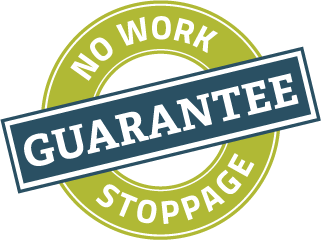Is Epoxy Coating or Concrete Polishing Right for Your Industrial Plant?

An industrial facility cannot function properly or safely without sturdy flooring. Concrete floors are built tough, but they’re also vulnerable to impact, pressure, moisture, chemicals, and other factors. Without proper protection, your industrial floors will require constant oversight, and even then, it won’t be enough to prevent every type of damage or deterioration that might befall them. This is why investing in high-quality protective flooring solutions is crucial. Of course, there are multiple solutions available. Two of the most popular flooring options for industrial settings include epoxy coating systems and concrete polishing. The former involves installing additional layers over the existing floor, while the latter requires grinding down the concrete and applying a densifier for added strength. Both options have their pros and cons, and one might be better suited for your purposes than the other.
With that in mind, which flooring solution is best for your industrial plant: epoxy coating or concrete polishing? Here are some things to consider before deciding.
How to Decide Between Epoxy Coating and Concrete Polishing for Your Industrial Plant
What’s Your Budget?
Total cost is one of the most important factors to weigh when comparing epoxy concrete floor coatings and polished concrete solutions. Both systems will cost your business one way or another, but both are actually among the most affordable flooring solutions. The exact cost of either approach depends on the size and scope of your floor and the condition of your concrete. If initial costs are your main concern, it’s best to compare quotes for both processes to get the best idea rather than rely on broader averages.
Consider Your Schedule
Time is money, especially if your industrial plant has to operate all the time or, at the very least, can’t be put on hold for too long. When a flooring project interferes with your standard operations, your bottom line can take a major hit. Knowing this, the differences in duration of epoxy vs. concrete polishing and restoration must be taken into account. Once again, the precise timetable depends on multiple factors. Epoxy projects sometimes take less time to complete than concrete polishing, but they often require additional downtime for drying and curing. With state-of-the-art diamond grinding equipment, a concrete floor can be polished quickly, and the floor can be used directly after the job is done. Additionally, a well-polished concrete floor requires far less maintenance than an epoxy coated floor. If you can’t afford to endure prolonged downtime at your facility, polishing might be the optimal solution.
Think Long-Term
When comparing floor protection solutions, it’s vital to keep the bigger picture in mind, too. The longer your floors last, the bigger your return on investment. A polished concrete floor can endure for decades when cared for properly. Epoxy systems can last a long time, too, but they usually require resurfacing periodically especially in high-traffic spaces like industrial plants. These maintenance costs add up over time, so even though a polished concrete floor costs more upfront, it will wind up saving you money in the long run.
The Verdict: Is Concrete Polishing Better Than Epoxy?
Industrial plants can benefit from both epoxy coatings and concrete polishing solutions. One option isn’t inherently better than the other, which is why it’s so important to determine your own needs and goals before making the call. At Kaloutas, we offer both epoxy and concrete polishing solutions for industrial and commercial facilities. Let us help you determine which type of flooring is best for your industrial plant.
To learn more about us and all that we do, contact us online or give us a call at 978−532−1414 today!




